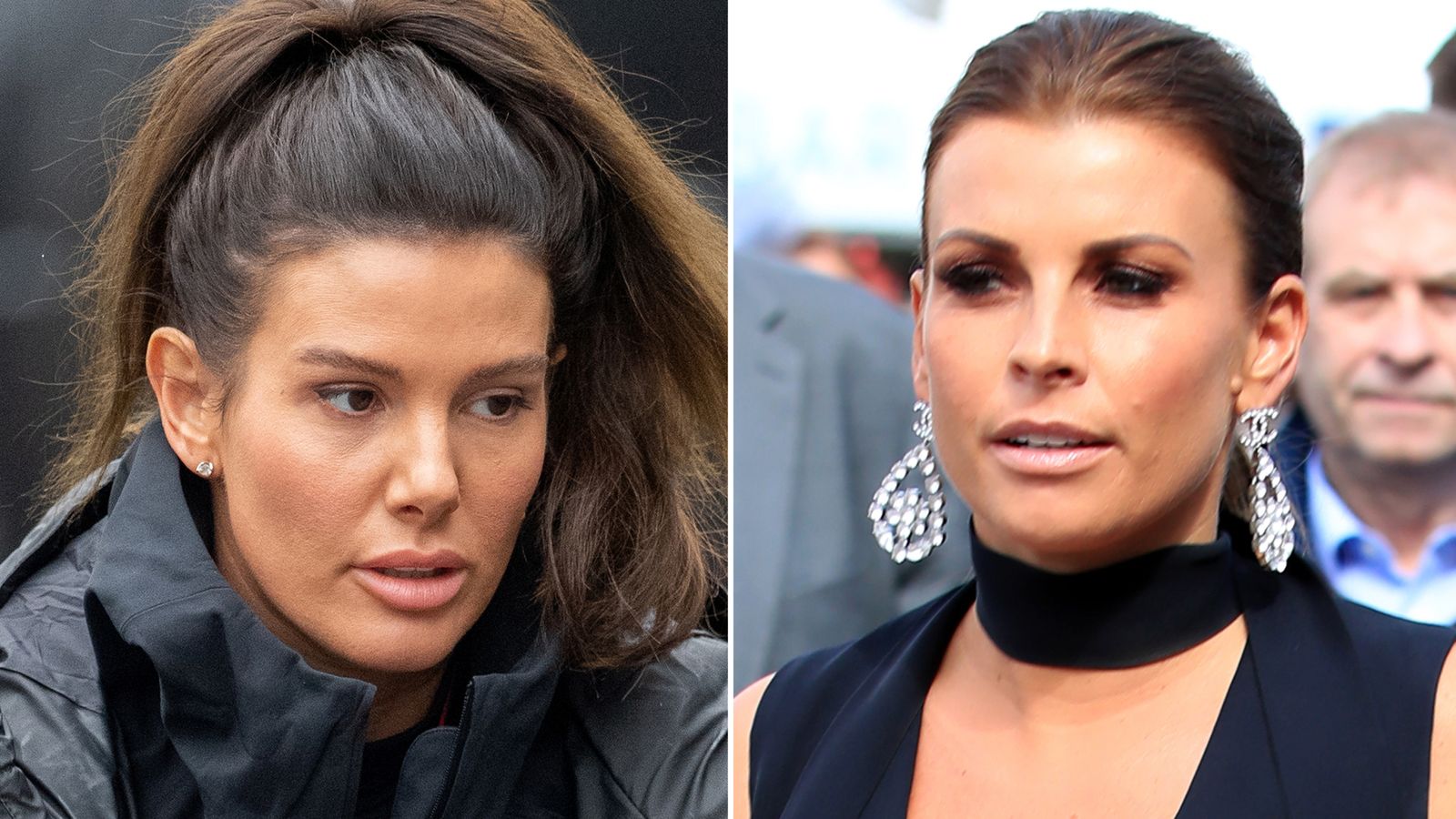Rebekah Vardy has claimed a partial win in the latest stage of her libel battle, succeeding in a request to have parts of Coleen Rooney’s defence thrown out.
Vardy, who is married to Leicester City striker Jamie Vardy, is suing Rooney after being accused of leaking “false stories” to a newspaper about her private life.
Rooney, the wife of former England star Wayne, revealed her allegations on social media in 2019 following a months-long “sting operation” that quickly saw her dubbed “Wagatha Christie”.
At a hearing in June, Vardy’s lawyers said parts of Rooney’s defence were “irrelevant or peripheral” and asked for the High Court to dismiss them.
Delivering her judgment on the request on Wednesday, Mrs Justice Steyn threw out some but not all of the aspects Vardy had applied to strike out.
One claim by Rooney that has been dismissed was that Vardy showed “publicity-seeking behaviour” when sitting behind Rooney at the Euros in France in 2016, even though it was someone else’s seat.
Assuming the claim was true, it would still not help Rooney’s case, the judge found.
“The fact that a person seeks media coverage of their own attendance at a football match does not make it more probable that they would disclose private information about another person to the press,” Mrs Justice Steyn said.
The judge said the argument was irrelevant and that “it would be a waste of time and resources” for the claim to continue.
Mrs Justice Steyn also threw out an allegation that Vardy was leaking information about the libel case itself to The Sun.
“While this is an allegation of leaking confidential information to The Sun, the nature of it is very different to what was alleged in the post,” the judge said.
“Notably, the defendant has pleaded it in support of the contention that there is a close relationship between the claimant and The Sun, rather than as an instance of the claimant disclosing another person’s private information.”
Rooney had also alleged that Vardy was the author of the newspaper’s short-lived Secret Wag column. Vardy had denied this and said the claim was not relevant to the trial, but the judge allowed it to remain part of the case.
Rooney’s lawyers argued it demonstrated Vardy’s “history and practice of publicly disclosing private information about other people she was friendly or associated with”.
The judge found that the column was relevant to the case, saying: “While these paragraphs do not go to the core issues, the allegation that the claimant had, or was the primary source for, a gossip column about professional footballers and their partners in The Sun is logically probative similar fact evidence.”
She also refused to throw out other parts of Rooney’s defence about Vardy’s alleged close relationship with The Sun and its journalists, including how she interacted with some on social media and positive coverage she allegedly received for leaking stories.
“The claimant’s engagement on social media with these journalists is relevant in considering the defendant’s case that she had an exceptionally close relationship with them, which I have accepted is one of the building blocks on which the defendant seeks to build her defence of truth,” the judge said.
Subscribe to the Backstage podcast on Apple Podcasts, Google Podcasts, Spotify, Spreaker
The row between the two women has been ongoing since October 2019, when Rooney claimed she had planted three fake stories about herself on her personal Instagram account, but made them visible only to Vardy.
She alleged these false stories – about travelling to Mexico to find out about gender selection, making a return to TV, and the basement flooding at her new house – had all been shared with The Sun newspaper.
In her latest request, Vardy had also bid for summary judgment – a legal step which would see that part of the case is resolved without a trial – in relation to Rooney’s claim about the TV presenting story.
However, the judge dismissed this, saying: “It is one of many factual issues to be resolved at trial in determining whether the truth defence is made out. It seems highly unlikely that resolution of this issue would assist the parties to settle the claim.”






















